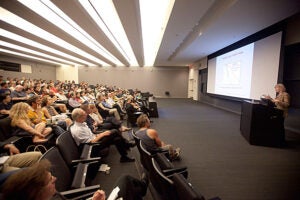Tag: Genes
-
Nation & World
Bringing Stone Age genomic material back to life
Scientific breakthroughs will enable exploration of Earth’s biochemical past, with hopes of discovering new therapeutic molecules.
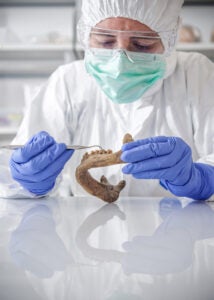
-
Nation & World
Horizontal helper
Cassandra Extavour and Leo Blondel provide the strongest suggestive evidence yet that at least part of a specific gene came from bacterial genomes.

-
Nation & World
Scientists map human protein interactions
Scientists produce a reference map of human protein interactions, releasing data helpful for understanding diseases including cancer and infectious diseases such as COVID-19.
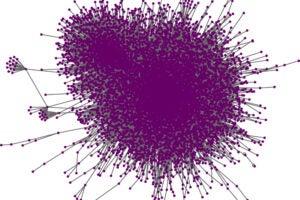
-
Nation & World
A clue to biodiversity?
An analysis of 20 butterfly genomes found evidence that many butterfly species — including distantly related species — show a surprisingly high amount of gene flow between them, Harvard researchers found.
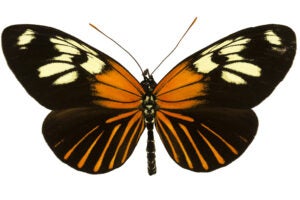
-
Nation & World
The genetics of regeneration
Led by Assistant Professor of Organismic and Evolutionary Biology Mansi Srivastava, a team of researchers is shedding new light on how animals perform whole-body regeneration, and uncovering a number of DNA switches that appear to control genes used in the process.
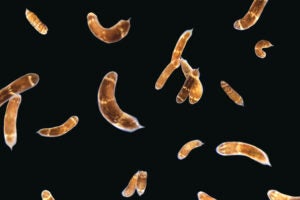
-
Nation & World
Solving colibactin’s code
In an effort to understand how colibactin, a compound produced by certain strains of E. coli, may be connected to the development of colorectal cancer, Harvard researchers are exploring how the compound damages DNA to produce DNA adducts.

-
Nation & World
Study identifies hundreds of genetic ‘switches’ that affect height
Researchers discovered hundreds of genetic “switches” that influence height, then performed tests that demonstrated how one such switch altered the function of a key gene involved in height difference.
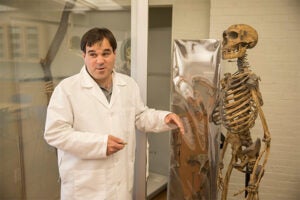
-
Nation & World
Skin pigmentation is far more complex than thought
The genetics of skin pigmentation become progressively complex the closer populations reside to the equator.
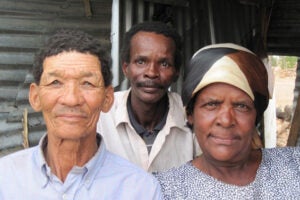
-
Nation & World
Making sense of survival
A Harvard study suggests a process known as synergistic epistasis enables humans to survive with an unusually high mutation rate.
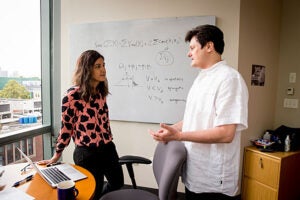
-
Nation & World
First draft of a genome-wide cancer ‘dependency map’
Researchers have identified more than 760 genes upon which cancer cells of multiple types are strongly dependent for their growth and survival.
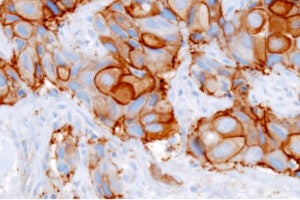
-
Nation & World
New insight on height, arthritis
New findings point to a surprising link between a genetic variant that favors shortness and an increased risk of osteoarthritis.
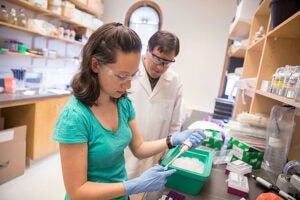
-
Nation & World
Why sing to baby? If you don’t, you’ll starve
A new study suggests that infant-directed song evolved as a way for parents to signal to children that their needs were being met, while leaving time for other tasks, like food foraging or caring for other offspring.

-
Nation & World
Science of stripes
Scientists have shown that to interrupt the development of pigment cells that form their stripes, African striped mice and chipmunks both use a gene that until now had been associated primarily with cranio-facial development.
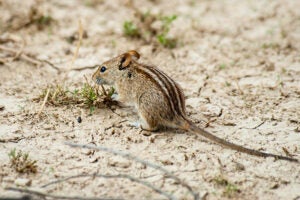
-
Nation & World
‘DNA is not destiny’
A new study examines whether lifestyle changes can offset genetic risk of heart disease.

-
Nation & World
For groups in conflict, genes matter
Visiting professor Sasha Kimel examined whether information about genetic links can influence groups in conflict.

-
Nation & World
Researchers help cells forget who they are
Scientists identify a molecular key that helps cells maintain identity and prevents the conversion of adult cells into induced pluripotent stem cells — a process that would require a cell to “forget” its identity before assuming a new one.
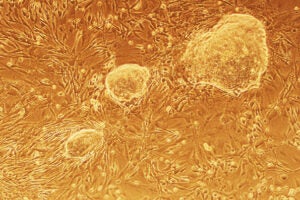
-
Nation & World
How coffee loves us back
Research at Harvard and elsewhere has repeatedly tied coffee consumption to health benefits.
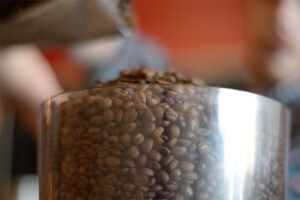
-
Nation & World
Improved accuracy in genome editing
A team of scientists has engineered a form of the genome-editing protein Cas9 that can be controlled by a small molecule and offers improved DNA specificity.

-
Nation & World
Java in the genes
Research led by Harvard investigators has found six new genes underlying coffee-drinking behavior.

-
Nation & World
Researchers shed new light on schizophrenia
Harvard-affiliated researchers joined an international team to identify more than 100 locations in the human genome associated with the risk of developing schizophrenia in what is the largest genomic study published on any psychiatric disorder to date.
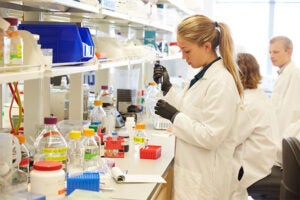
-
Nation & World
‘Junk?’ Not so fast
Research by Harvard Stem Cell Institute scientists shows that much lincRNA, which had been generally believed useless, plays an important role in the genome.
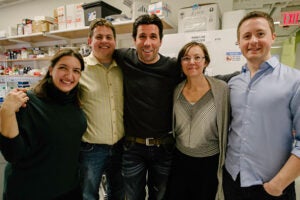
-
Nation & World
Genes without patents
The ACLU’s lead attorney and other participants in the Supreme Court case that overturned the common practice of patenting human genes discussed the ramifications in an event at the Science Center.
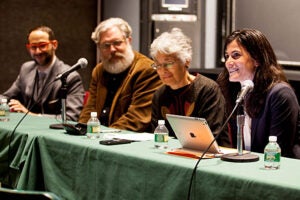
-
Nation & World
A foundation for future research
Harvard researchers recently developed the most detailed “specificity profile” for Cas9 — a “machine” made of protein and RNA that can be programmed to target specific DNA sequences and to precisely cut, paste, and turn on or turn off genes. Future researchers will use the data when developing genetic tools and therapies.

-
Nation & World
Bacterial blockade
Harvard researchers have identified a pair of genes that appear to be responsible for allowing a specific strain of bacteria in the human gut to break down Lanoxin — a widely prescribed cardiac drug — into an inactive compound, as well as a possible way to turn the process off.

-
Nation & World
Evolutionary oomph
Scientists may soon be able to turn to one of the most powerful forces in biology — evolution — to help in their quest to develop new synthetic polymers.
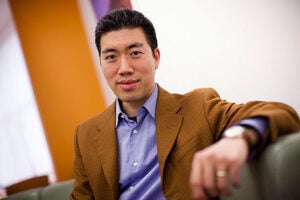
-
Nation & World
Digging yields clues
As described in a Jan. 16 paper in Nature, a team of researchers led by Hopi Hoekstra, professor of organismic and evolutionary biology and molecular and cellular biology, studied two species of mice – oldfield mice and deer mice – and identified four regions in their genome that appear to influence the way they dig…

-
Nation & World
So doggone complicated
Geneticist Elaine Ostrander runs a comparative-genomics lab that examines dog DNA to understand better the traits that might aid understanding of human diseases.
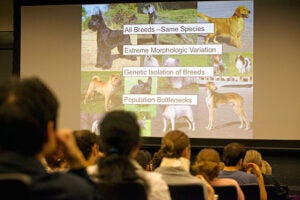
-
Nation & World
A fresh look at mental illness
In a paper published in Neuron, Joshua Buckholtz and co-author Andreas Meyer-Lindenberg identify a biological reason for why many mental disorders share similar symptoms, a situation that makes diagnosis challenging.
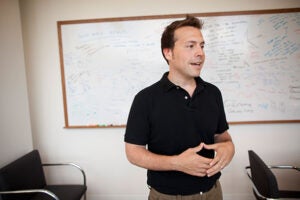
-
Nation & World
Life lessons from an old worm
Research is uncovering the genetic roots of aging, peeling back the once common understanding that creatures simply “wore out” as they aged, and slowly revealing the mechanisms that control a process determined by our genes and that proceeds at different speeds for different species.
